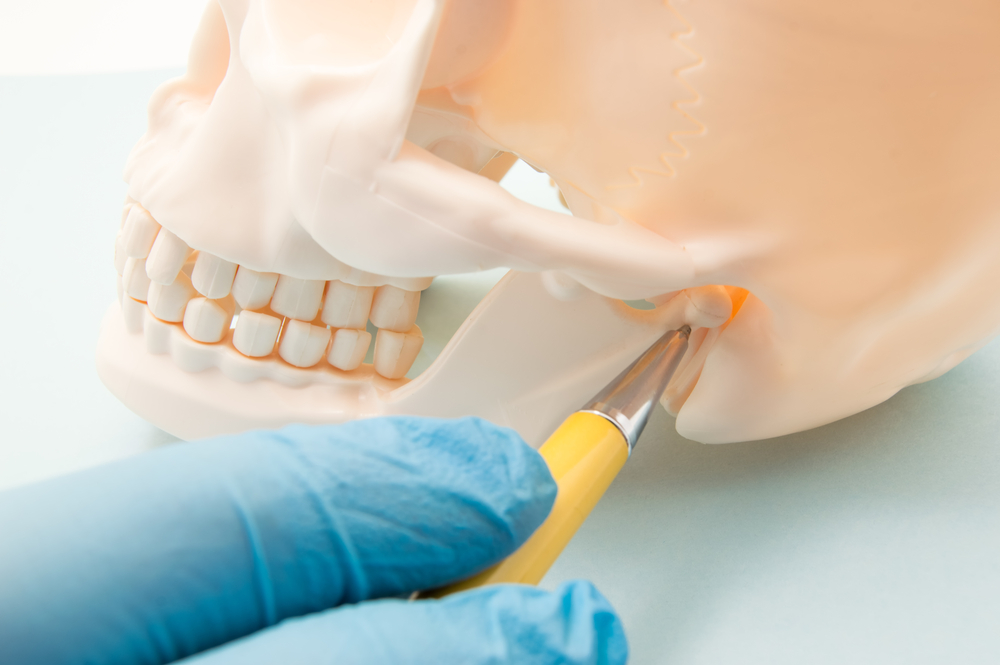Can TMJ Be Cured?

Millions of Americans suffer from TMJ disorders. That’s millions of people suffering from jaw pain due to a disorder in the jaw joint. TMJ disorders can also cause pain in other parts of the head, including the head, neck, and ear. The top question for many of these TMJ sufferers is, therefore: Can TMJ be cured?
The short answer is that it depends. TMJ isn’t just one single disorder, but multiple conditions that cause pain in the temporomandibular joint in the jaw. Whether or not it can be cured completely depends entirely on what exactly is causing the pain in the first place. Some forms of TMJ may be curable, while for others, sufferers may only be able to manage the pain.

What Causes TMJ?
TMJ is an umbrella term that encompasses any pain that’s centered around the temporomandibular joint in the jaw, no matter what it’s caused by. TMJ can be caused by an injury or by a condition, such as:
- Connective tissue diseases
- Arthritis, including:
- Rheumatoid arthritis
- Osteoarthritis
- Chronic teeth clenching
- Chronic teeth grinding
- Jaw injury
- Eroded disk
- Misaligned disk
What Types of TMJ Can Be Cured?
Unfortunately, there is no cure for arthritis. This means that for anyone suffering from TMJ due to arthritis, there’s also no cure for the TMJ disorder. An eroded disk or a connective tissue disease may similarly have no cure. However, there are steps you can take to manage your TMJ pain.
If your TMJ pain is caused by chronic teeth clenching or grinding, or if it was caused by an injury, there may be a cure. For an injury, it depends on the severity of the injury. If the injury will be able to heal in full, there may be no residual effects from it. The pain may go away with time as the jaw injury heals. However, if it was a severe injury, you may experience pain from it for a long time.

How Can I Cure TMJ Caused By Teeth Grinding?
If your TMJ pain is caused by the chronic grinding or clenching of your teeth, then you can cure it by stopping the behavior. Once the behavior causing the pain stops, then the pain itself should stop after your jaw has had enough time to rest.
How Can I Stop Grinding My Teeth?
It’s easier to stop grinding your teeth during the day just by being aware of it. If you find that you’re grinding your teeth during the day, touch your tongue to your teeth in order to force your jaw muscles to relax.
However, a lot of people who grind their teeth do so at night, when they have no conscious control. There are several methods you can use to stop grinding:
- Avoid caffeine
- Use a warm compress on your jaw before sleeping to relax the muscles
- Don’t chew on anything that isn’t food
- Avoid gum
- Wear a mouthguard
If a mouthguard doesn’t help, talk to your dentist about custom splints that are designed specifically for your mouth. A mouthguard or a splint may not stop you from grinding your teeth in the first place but can help soften the pressure between your teeth and force your jaw muscles to relax, reducing the pain.
Can Physical Therapy Cure TMJ?
For some types of TMJ, physical therapy can both ease the pain and help cure the cause of the TMJ. There are specific exercises that help with TMJ pain, whether the cause of the pain is curable or not. Physical therapy can even help if your TMJ pain is caused by a misplaced disk. In fact, physical therapy is often a better cure or pain management technique than something like splints, depending on what’s causing your TMJ pain.
Exercises that can help include:
- Resisted closing
- Chin tucks
- Tongue up
- Forward jaw movement
However, it’s important to consult with your physical therapist before attempting any exercises on your own. This is because not all exercises may help with your specific TMJ disorder. Plus, there’s a chance you might perform them incorrectly, which could make the disorder and the pain worse.
Working with a physical therapist will ensure that you perform each exercise correctly under the watchful eye of a professional. The physical therapist can then suggest exercises and how frequently to do them at home.
Can Surgery Cure TMJ?
Surgery is considered a last resort for managing TMJ. Many medical experts don’t recommend surgery even then. If there’s an internal problem with the joint, surgery may be able to help. TMJ surgery, called arthroscopy, can involve repositioning the joint or anything else the surgeon thinks might help.
For informational purposes only.











